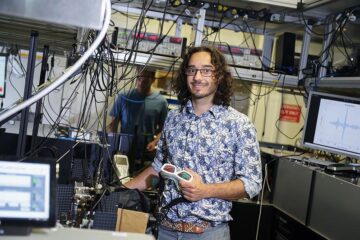Conference on Open Access to Knowledge in the Sciences and Humanities

Conference Synopsis and Strategic Aims
The 3-day conference aims to bring together key players from national and international research organizations, learned societies, museums, archives, libraries and research funding agencies and political institutions, commercial and non-for profit publishing services concerned about the future of scientific e-publishing and scholarly communication. The declared aim of the meeting is to provide guidance to all players involved on how to help build a future-proof, flexible, open, and high-quality scholarly and scientific publishing system.
- Prepare the transformation of all areas of research from the print into the electronic world.
- Establish an open-access policy on the Internet for scientific information, including cultural heritage.
- Define future models for web-based scientific/scholarly communication and publishing and for making cultural heritage accessible on the Web.
- Provide blueprints on how to make publishing alternatives work in a sustainable way.
- Encourage funding agencies and research organizations to support the creation and implementation of open access models for scientific publishing.
- Encourage funding agencies and research organizations to support the transfer of existing content both from science and culture to the new medium.
- Define prerequisites for a future Web of Culture and Science.
The conference will take place in the Conference Center „Harnack-Haus“ in Berlin. Address: Max-Planck-Gesellschaft Tagungsstätte Harnack-Haus, Ihnestraße 16-20, D-14195 Berlin.
Media Contact
Weitere Informationen:
http://www.mpg.de/english/contemporaryIssues/news/index.html http://www.harnackhaus-berlin.mpg.deAlle Nachrichten aus der Kategorie: Veranstaltungsnachrichten
Neueste Beiträge

Neue universelle lichtbasierte Technik zur Kontrolle der Talpolarisation
Ein internationales Forscherteam berichtet in Nature über eine neue Methode, mit der zum ersten Mal die Talpolarisation in zentrosymmetrischen Bulk-Materialien auf eine nicht materialspezifische Weise erreicht wird. Diese „universelle Technik“…

Tumorzellen hebeln das Immunsystem früh aus
Neu entdeckter Mechanismus könnte Krebs-Immuntherapien deutlich verbessern. Tumore verhindern aktiv, dass sich Immunantworten durch sogenannte zytotoxische T-Zellen bilden, die den Krebs bekämpfen könnten. Wie das genau geschieht, beschreiben jetzt erstmals…

Immunzellen in den Startlöchern: „Allzeit bereit“ ist harte Arbeit
Wenn Krankheitserreger in den Körper eindringen, muss das Immunsystem sofort reagieren und eine Infektion verhindern oder eindämmen. Doch wie halten sich unsere Abwehrzellen bereit, wenn kein Angreifer in Sicht ist?…





















